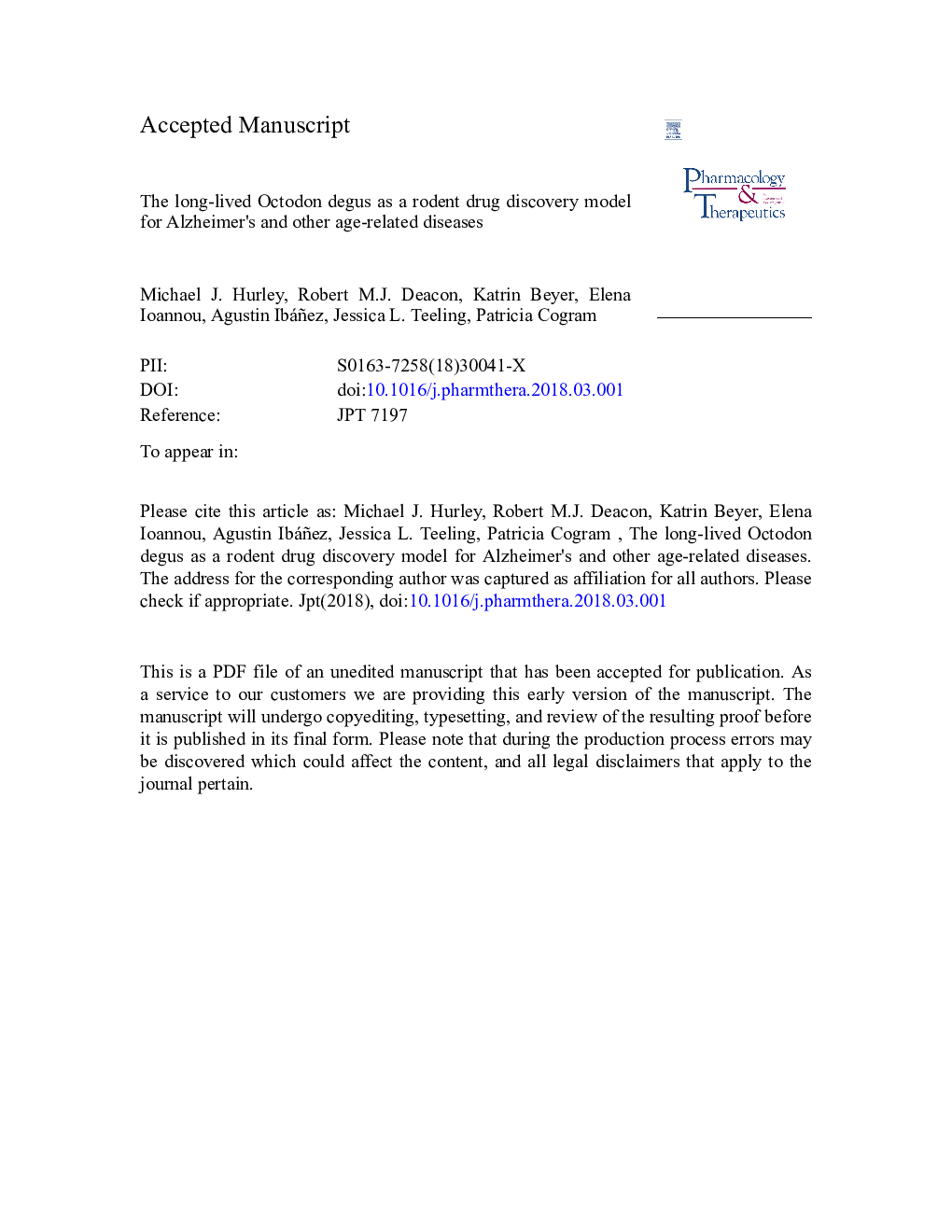| Article ID | Journal | Published Year | Pages | File Type |
|---|---|---|---|---|
| 8536783 | Pharmacology & Therapeutics | 2018 | 29 Pages |
Abstract
Alzheimer's disease (AD) is a multifactorial progressive neurodegenerative disease. Despite decades of research, no disease modifying therapy is available and a change of research objectives and/or development of novel research tools may be required. Much AD research has been based on experimental models using animals with a short lifespan that have been extensively genetically manipulated and do not represent the full spectrum of late-onset AD, which make up the majority of cases. The aetiology of AD is heterogeneous and involves multiple factors associated with the late-onset of the disease like disturbances in brain insulin, oxidative stress, neuroinflammation, metabolic syndrome, retinal degeneration and sleep disturbances which are all progressive abnormalities that could account for many molecular, biochemical and histopathological lesions found in brain from patients dying from AD. This review is based on the long-lived rodent Octodon degus (degu) which is a small diurnal rodent native to South America that can spontaneously develop cognitive decline with concomitant phospho-tau, β-amyloid pathology and neuroinflammation in brain. In addition, the degu can also develop several other conditions like type 2 diabetes, macular and retinal degeneration and atherosclerosis, conditions that are often associated with aging and are often comorbid with AD. Long-lived animals like the degu may provide a more realistic model to study late onset AD.
Keywords
Related Topics
Health Sciences
Pharmacology, Toxicology and Pharmaceutical Science
Pharmacology
Authors
Michael J. Hurley, Robert M.J. Deacon, Katrin Beyer, Elena Ioannou, Agustin Ibáñez, Jessica L. Teeling, Patricia Cogram,
